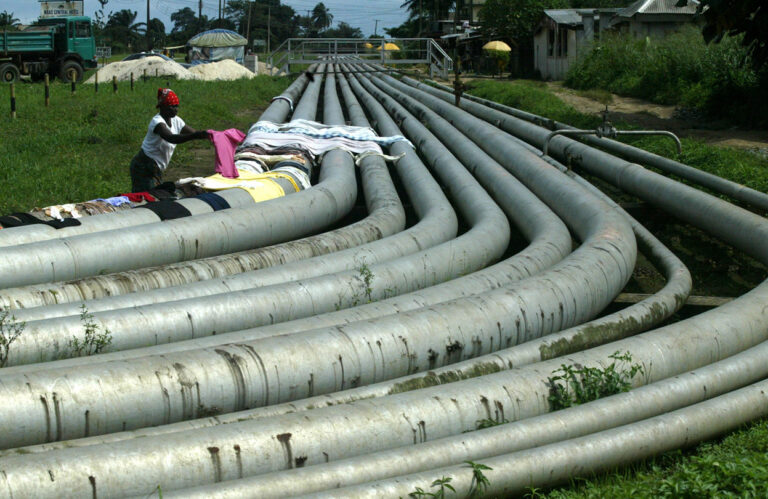Nigeria’s efforts to revive oil production and attract foreign investment are under threat as sabotage disrupts critical crude pipeline infrastructure.
For years, pipeline vandalism has plagued the country’s oil sector, but improved security measures had recently led to a 40% increase in production. In January, Nigeria even exceeded its OPEC quota, marking a significant recovery.
However, this new wave of sabotage threatens to undo those gains and sends a troubling message to investors.
Setback for the Tinubu Government’s Oil Strategy
Clementine Wallop, Director for Sub-Saharan Africa at Horizon Engage, highlighted the potential fallout:
“This is a blow to the Tinubu government’s recent successes on oil output, gains driven in part by improved security measures. It is also a very difficult investment signal during a period where the government seemed to be turning a corner on energy.”
Nigeria, Africa’s largest oil producer, has struggled to stabilize crude output due to theft, sabotage, and aging infrastructure. The government had ramped up efforts to curb oil theft, boost security, and restore investor confidence.
This latest attack raises concerns about the long-term viability of those security measures.
Bonny Light Crude Exports Remain Steady (For Now)
The attack targeted the Trans Niger Pipeline (TNP), a key pipeline transporting Bonny Light crude—one of Nigeria’s major export grades.
Despite the sabotage, Renaissance Africa Energy, the new owners of the pipeline (after acquiring it from Shell Plc last week), have stated they do not plan to declare force majeure.
At the moment:
Bonny Terminal operations continue.
Two tankers are waiting to load crude.
Renaissance Africa Energy remains committed to maintaining exports.
However, the incident underscores the persistent security challenges facing Nigeria’s oil sector.
What This Means for Nigeria’s Oil Future
Nigeria’s oil and gas industry is at a crossroads. While recent policy shifts and security measures have helped stabilize production, this latest pipeline sabotage could:
Deter new investments in oil infrastructure.
Slow down production growth, reversing recent gains.
Cause volatility in crude exports, affecting government revenue.
For the Tinubu administration, addressing this crisis swiftly will be crucial to sustaining Nigeria’s oil recovery and rebuilding investor trust in the country’s energy sector.

